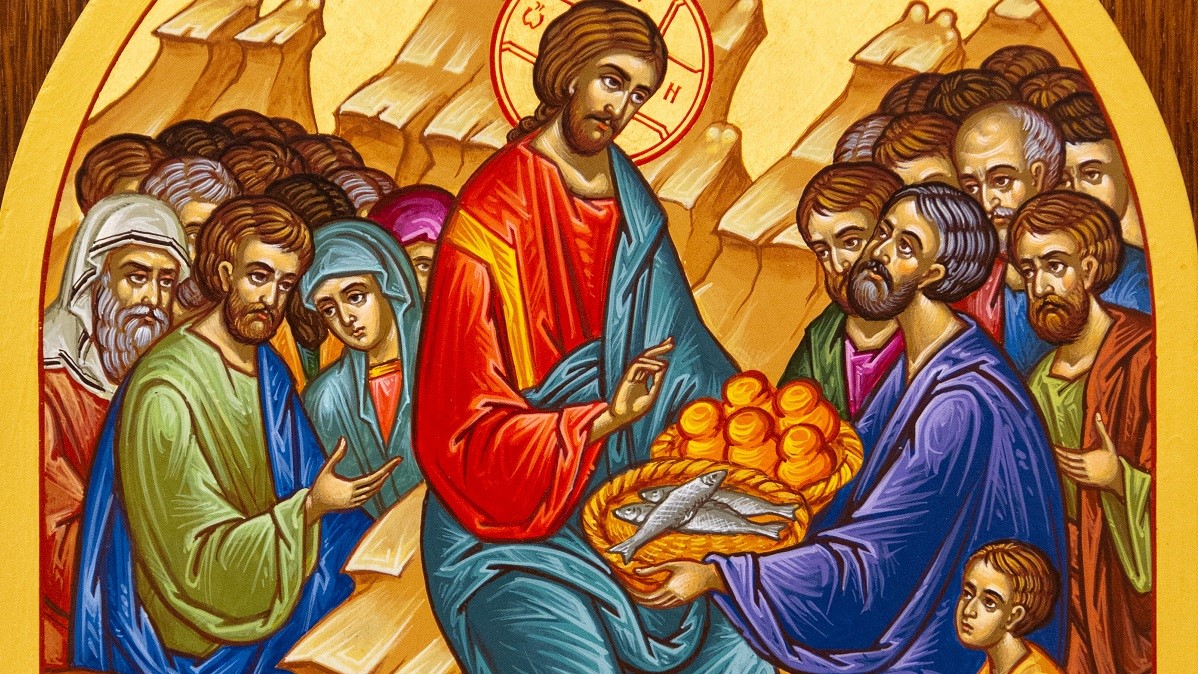Sunday, August 11, 2024
8:00 AM Sunday Mass at St. Vincent de Paul
Readings:
First Reading: 1 Kgs 19:4-8
Second Reading: Eph 4:30—5:2
Gospel: Jn 6:41-51
The Bread of Life
Today, we continue our journey through the sixth chapter of the Gospel of John, delving into the discourse on the Bread of Life. Over the past two weeks, we’ve explored the significance of Jesus’ miracles, particularly the multiplication of the loaves, and how these events serve as profound catechesis on the Eucharist and the Mass. Let’s take a moment to recap and reflect on the lessons we’ve learned so far.
The Multiplication of the Loaves
Two weeks ago, we witnessed Jesus performing the miracle of multiplying bread to feed 5,000 people. This wasn’t just a miraculous act of generosity; it was a sign. A sign that pointed to something greater—the abundance and permanence of God’s gifts. Just like in the Old Testament, when the prophet Elisha multiplied bread and had leftovers, Jesus demonstrated that in His presence, there is always more than enough. In the Mass, we partake in this abundance, in the Bread that sustains not just our bodies, but our souls.
The True Bread of Life
Last week, we saw how the crowds pursued Jesus, not because they understood the sign, but because they wanted more miracles. They wanted their physical needs met, but Jesus invited them to seek something deeper—the food that endures for eternal life. This teaching reminded us that the Eucharist isn’t just a ritual or a symbol; it’s the living Bread that gives us life, strength, and the grace to know and do God’s will. It’s not about asking God to fulfill our will, but about opening ourselves to His will.
A Call to Trust and Transformation
Today’s Gospel brings us to the third chapter of this discourse. The people are skeptical and offended when Jesus declares that He is the Bread of Life, the One who came down from heaven. They see Him as merely human, missing the divine reality in front of them. This is a challenge for us as well—to recognize that the Mass, the Eucharist, and our Christian community are not just human institutions or rituals. They are encounters with the living God, who comes to us in the most tangible way, offering us His very life.
Finding Strength in the Eucharist
We also heard from the prophet Elijah, who, in his despair, wanted to give up on life. But God provided him with bread in the desert, giving him the strength to continue his journey. Similarly, the Eucharist is our sustenance in the deserts of our lives. When we face obstacles, frustrations, or moments of despair, the Eucharist is God’s way of saying, “Get up and eat. Your journey is not over. I am with you, and I will give you the strength you need.”
The Invitation to Live as Missionaries
As we reflect on today’s readings, let’s consider what God is asking of us. Perhaps He’s calling us to forgive someone, to reconcile a broken relationship, or to renew our commitment to living our lives as a mission of love and service. Whatever it is, He provides us with the grace and strength through the Eucharist to fulfill our mission, to live a life that remains, rooted in His love.
Let us approach the altar today with open hearts, ready to receive the Bread of Life that sustains us, transforms us, and gives us the strength to live fully in His will. And as we continue to walk this journey of faith, may we always remember that in the Eucharist, we are given everything we need to live a life of purpose, meaning, and eternal significance.

Leave a Reply